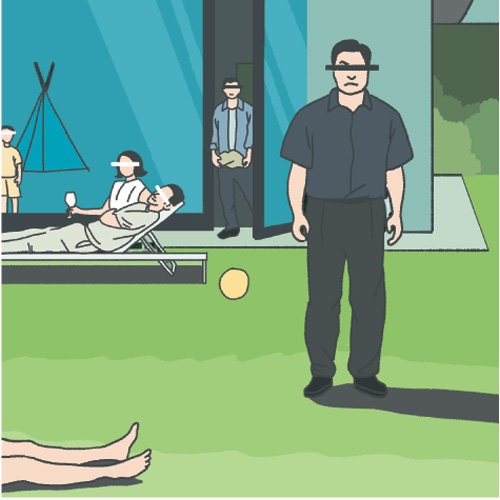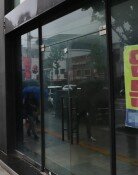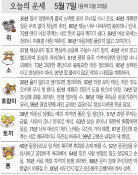Aesthetics of discomfort
Aesthetics of discomfort
Posted February. 26, 2020 07:35,
Updated February. 26, 2020 07:35

Art, though not always, makes us feel uneasy. “Parasite” by director Bong Joon-ho is a case in point. The title alone causes some level of discomfort.
Parasites, which derive nutrients from their hosts, can metaphorically refer to people who live in a parasitic way by being dependent on others. The South Korean movie’s story never gets away from what the uneasy title implies and reminds of. French literary theorist Gerard Genette said that the title of a work is to “secure a fate in line with a creator’s intention.” Therefore, a title is an intrinsic credo that functions as a guide to ensure the interpretation of work according to a creator’s intention.
Then, who are the parasites referred to in the title? Primarily, they can be a family living in the semi-basement apartment. Ki-taek, Chung-sook, Ki-jung, and Ki-woo – they all have allegorical names from the movie’s Korean title, “Gisaengchung.” It is unavoidable to make the metaphorical connection between the working-class people dependent on the wealthy Park family and parasites. However, looking at the extreme gap between the rich and poor featured in the movie with a broader view offers a different perspective. Who is truly living off of whom in the capitalist system? But what if the rich are parasitic on the poor to create their own wealth? From such a perspective, the uncomfortable title and story of the movie is a kind of irony and provocation.
Director Bong must have been fully aware of how uncomfortable his new movie could be. “I did not want to sugarcoat the movie because of the fear of how uncomfortable audiences would feel about the raw and bitter picture of the gap between the rich and the poor in the modern society,” said Bong in an interview, which implies that he has intentionally chosen the uncomfortable title expecting the uneasiness audiences would experience. As he did in his previous movie “Snowpiercer,” it appears that Bong wanted his uncomfortable movie to trigger more thought and reflection on the economic and structural inequality created by capitalism. Such discomfort was his own expression of aesthetics and political science.







